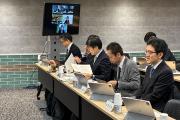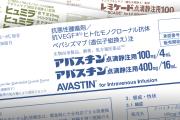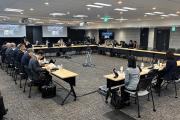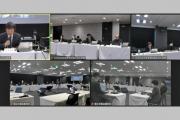As reported previously, Reed Maurer passed away on August 30 due to complications from pneumonia. He was approaching his 84th birthday.
Reed has been a driver of the international pharma community in Japan like nobody else. Arriving over fifty years ago in Japan from the US, he helped build up Eli Lilly’s business in Japan, culminating in the establishment of an independent subsidiary in 1975. Until the 1970s, most Western pharma companies operated through joint ventures or licensing deals in Japan.
Reed went on to join Merck & Co. where he led the company to buy a majority stake in Banyu in 1984 and thus put the company on a strong footing in Japan. This purchase remains even today the most significant outright acquisition of a Japanese pharma company by a foreign pharma giant.
He went on to represent PhRMA in Japan between 1987 and 1993, a pivotal time for foreign pharma companies to establish a more independent presence in the country and to start gaining some influence on regulatory policies.
In 1989, he started a new career as industry observer and company advisor, helping many GMs strengthen their business in Japan or helping others set up business in Japan for the first time.
He will always be remembered for his witty articles, published for 18 years monthly in PHARMA JAPAN until 2012, and on a more occasional basis thereafter in the Pharma Letter. He liked to describe how the industry had been changing over the decades of his stay in Japan, yet many of his insights were boundless in time and remain valid even today. His writings highlighted the uniqueness of Japan but also helped to demystify Japan for expats.
His faith that foreign companies and foreigners in Japan could be successful on their own inspired many executives to pursue a more independent presence in Japan. His best articles remain accessible today in book publications under his name.
Reed was very open about his battles with cancer and was proud to report how he had battled successfully yet another cancer - ultimately it was six different cancers in all. On top of this he had both hips replaced and each time appeared at events only a few days after his operations as if nothing had happened. He was full of admiration for what Japanese doctors and nurses did for him, but surely his long health was also the result of the boundless energy he could muster until the very end.
He kept running a lively Study Group (as he called it) of multinational company presidents that would gather five times a year for half a day to listen to outside speakers and discuss the latest trends. He was keen to push the thinking and explore how business would or should evolve, rather than just understanding the present or past. Never quite sure for how long the group would keep going, he ended up running it for 28 years, thanks to the strong followership he had among GMs.
His many industry friends in Japan remember him for the humbleness and warmth that he combined with his distinctive curiosity and frankness. He was not shy to be outspoken on many issues, be it in writing or in person, yet without offending anyone. Many of the past and present GMs valued him as a mentor and advisor who always contributed his great thinking and passion to every occasion and encouraged everyone to keep driving forward.
Reed is survived by his wife and five children as well as countless friends and admirers in the industry and beyond.











